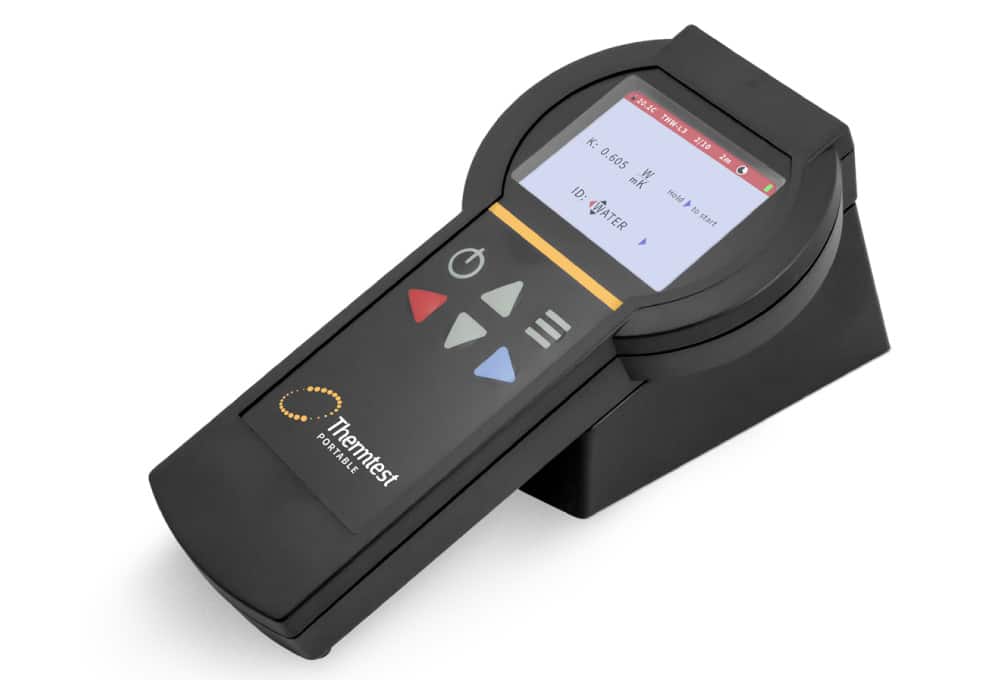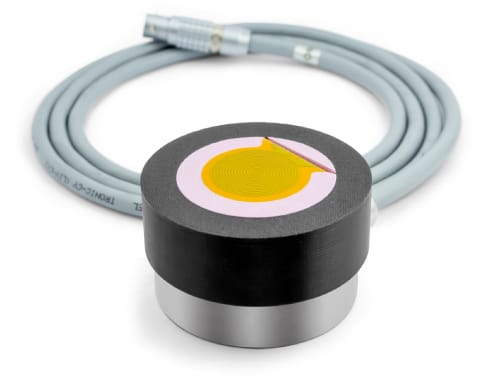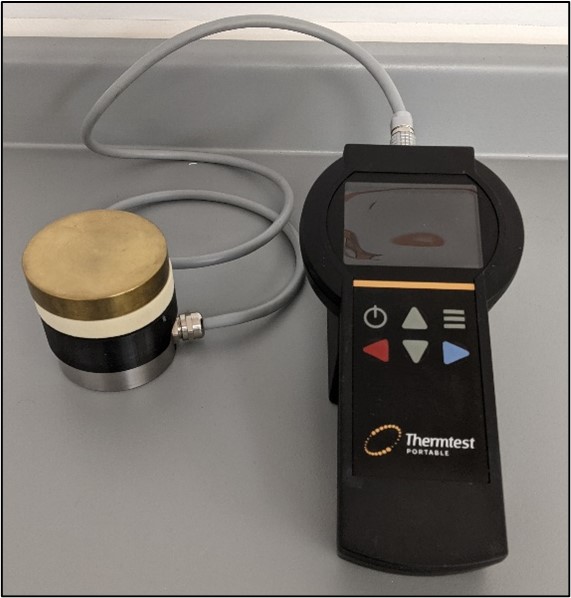The Measurement Platform-2 (MP-2) is an advanced meter with unique selection of transient thermal conductivity sensors for a variety of applications, with a focus on primary measurements. The transient thermal conductivity sensors share similar principles of operation. The sensor wire is heated using a constant current source (q) and the temperature rise is recorded by monitoring the change in electrical resistance of the wire (THW and EFF) or by resistance temperature detector device (TLS). For samples of high thermal conductivity, resistance increases more slowly over time; for samples of low thermal conductivity, resistance increases more quickly over time.

Picture 1. Thermtest MP-2 Thermal Conductivity Meter
Thermal conductivity MP-2 users benefit from the convenience and accuracy gained when using primary testing methods. The MP-2 controller auto-detects the connected sensor and loads corresponding testing parameters. Measurements are easily performed with the smart on-board software and transferred to computer with an included Windows utility program.

Picture 2. Thermtest TPS-EFF sensor for use with the MP-2 portable meter..
The TPS-EFF is a portable thermal effusivity meter for textiles, fabrics, and solids, and adheres with an internationally recognized standard of testing by complying with ASTM D7984-16. This sensor has a thermal effusivity measurement range of 35 to 1700 (W√s/m2K) and a temperature range of -10 ºC to 50 ºC. A single measurement can be set to 2 or 10 seconds in duration. The TPS-EFF has a 5% accuracy and a 2% reproducibility of measurement, making it a highly accurate and precise instrument for measuring the thermal effusivity of a variety of samples.
Thermal effusivity is most typically measured to predict how ‘cool’ or ‘warm’ a material feels. It has a square root proportionality to the density, thermal conductivity, and specific heat capacity of the material. Highly dense samples made of materials with high thermal conductivity and specific heat capacity values have high thermal effusivity values, and vice versa. This application sheet uses the Thermtest TPS-EFF sensor to measure the thermal effusivity of polyurethane foam and polyurethane rubber.
Polyurethane can be made into many different materials of varying strength and durability, from foam to rubber. This application sheet will compare the thermal effusivity of polyurethane foam to that of two different durometers of polyurethane rubber, 40A and 60A. The durometer of a material is a standardized measure of how hard it is. Foams are often used in furniture and upholstery, while rubbers are commonly used as a gasket material. Gaskets are a type of mechanical seal between two or more surfaces, generally to prevent leaks of liquid or gas. The thermal effusivity and durometer of any polyurethane material is important to ensure that it will perform properly in the environment or machine it is designed for.

Picture 3: Thermtest MP-2 handheld with TPS-EFF sensor, polyurethane foam sample, and 600g brass weight to ensure proper contact between sensor and sample. The same set-up was used to measure both 40A and 60A polyurethane rubber.
Table 1:: Table 1: Results of measuring polyurethane rubbers and foam with the Thermtest TPS-EFF sensor.
| Sample | Average Thermal Effusivity (W√s/m2K) | RSD % |
|---|---|---|
| Polyurethane Foam | 97.9 | 0.27 |
| Polyurethane Rubber 40A | 634.5 | 0.37 |
| Polyurethane Rubber 60A | 655.5 | 0.29 |